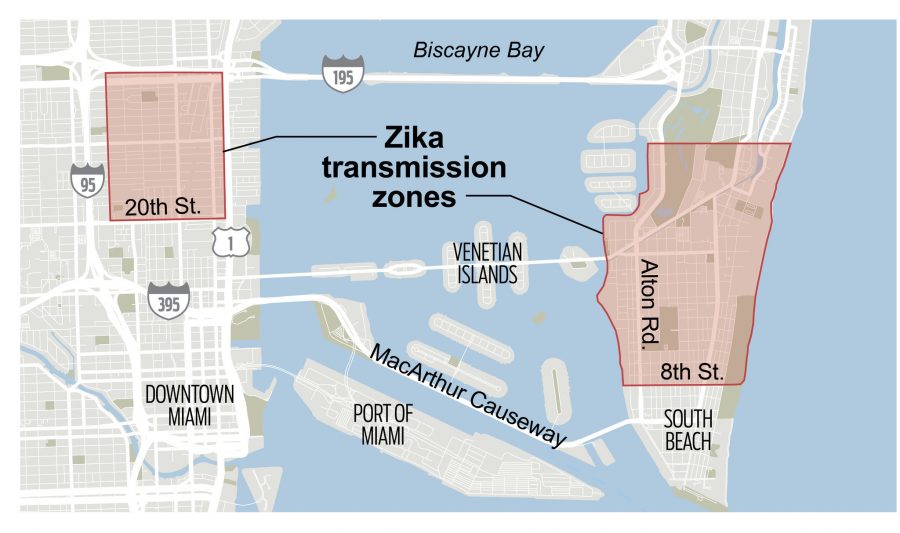Pregnant Women Advised to Avoid Parts of Miami Beach
October 27, 2016
It was in early August when the Centers for Disease Control and Prevention (C.D.C.) made the unprecedented announcement warning women to avoid a Zika-stricken part of Miami, as well as to put off having children for at least two months. The Zika virus is a mostly symptomless disease that can cause severe brain-related birth abnormalities; in fact, the disease has already led to more than 1,800 brain defects in newborn babies worldwide. The disease is most commonly spread through mosquitoes, mosquitoes that scientists say have started to spread onto U.S mainland.
Although Florida authorities have yet to discover any of these disease-carrying insects, there are a total of 36 Zika-related infections in the state of Florida, with 25 of them being linked to Miami-Dade county. However, the realization that Miami Beach, one of the country’s most fascinating tourist destinations, was a zone for Zika transmission did not come from these cases breaking out in the United States, but was rather prompted from a Taiwanese news report. In this announcement, the Taiwanese C.D.C. reported that a 44-year-old women, who had just gotten back from a trip to Miami and sought medical treatment for a rash, tested positive for Zika.
So far, there is great concern among the local Miami officials, especially those involved with tourism. Grace Della, the owner of a company that directs group tours around the Miami coast, has said that she has had to cancel two weeks worth of tours because of this Zika outbreak “I have received emails from women saying that they are pregnant or thinking about getting pregnant, and are concerned about coming to Miami, and I am happy to give them a refund and also to anyone else who wants one.”
Josh Alexander, a travel specialist positioned in New York, has stated that clients have begun to start canceling their plans to Florida. “I have had cancellations to the Florida Keys and am getting calls from families who are booked to go to Disney in December,” he said. “They don’t want to go anywhere near Florida in general.”
Economic unrest is also a growing problem in the Miami area. As Miami-Dade mayor Carlos A. Giménez puts it, “I’m concerned about the impact on the economy, and I’d be lying if I said I wasn’t.”
While tourism and economic affairs are one thing, it is unanimously agreed upon, among the health and governmental officials situated in Florida, that the public health of the people in Miami come first.



